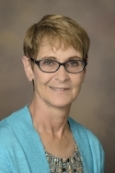2018 Precision Medicine Symposium Invited Speakers

Curtis Coughlin, MS, MBe, CGC
Genetic Counselor, Section of Cliinical Genetics and Metabolism; Associate Professor, Pediatrics; Associate Faculty Member, Center for Bioethics and Humanities; University of Colorado Anschutz Medical Campus
Curtis is a genetic counselor in the Section of Clinical Genetics and Metabolism and an Associate Professor of Pediatrics at the University of Colorado School of Medicine. His clinical focus is on the treatment of metabolic encephalopathies and clinical applications of genomic sequencing. His primary research focuses on the diagnosis and treatment of metabolic encephalopathies.
He received his ethics training at the University of Pennsylvania School of Medicine. He is an Associate Faculty member at the Center for Bioethics and Humanities at the University of Colorado Anschutz Medical Campus and serves as a member of the ethics consultation team at the Children’s Hospital of Colorado. His main interest is ethical issues within the field of genetics with a focus on the return of results and secondary findings identified through genomic sequencing.

Michael Hammer, PhD
Director, Division of Technology and Innovation, Center for Applied Genetics and Genomic Medicine; Research Scientist, Arizona Research Laboratories, Division of Biotechnology; Research Scientist, Neurology, Ecology and Evolutionary Biology, Anthropology, Steele Children's Research Center, BIO5, and the UA Cancer Center; Associate Director, Omics, BIO5 Institute; University of Arizona
Michael Hammer is a Research Scientist in the Division of Biotechnology at the University of Arizona with appointments in the Department of Neurology, Ecology and Evolutionary Biology, Bio5, the School of Anthropology, the University of Arizona Cancer Center, and the Steele Children's Research Center. Currently Dr. Hammer is interested in the use of the latest DNA sequencing technology to infer the underlying genetic architecture of neurodevelopmental diseases. Since 1991 Dr. Hammer has directed of the University of Arizona Genetics Core (UAGC), a facility that provides training and molecular biology services to University and biotechnology communities at large. After receiving his Ph.D. in Genetics at the University of California at Berkeley in 1984, he performed post-doctoral research at Princeton and Harvard. Over the past two decades, Dr. Hammer has headed a productive research lab in human evolutionary genetics, resulting in over 100 published articles documenting the African origin of human diversity, interbreeding between modern humans and archaic forms of the genus Homo, and genome diversity in the great apes. His lab and the UAGC were early adopters of next generation sequencing (NGS) technology and the application of whole genome analysis in humans, and his lab has been a key player in the Gibbon and Baboon Genome Projects, as well as a consortium that has analyzed the genomes of over 100 Great Apes (GAPE Project). In the past 3 years, Dr. Hammer's research team has successfully employed NGS methods to identify molecular lesions causing neurodevelopmental disorders in undiagnosed children. This has led to the publication of articles identifying pathogenic variants associated with early onset epileptic encephalopathies. His lab is also currently pursuing studies to identify modifier genes that alter the expression of major genes and how they contribute to phenotypic heterogeneity in Mendelian disorders.

H. Eugene Hoyme, MD, FACMG, FAAP
Senior Advisor, Center for Applied Genetics and Genomic Medicine; Medical Director, University of Arizona Genetic Counseling Graduate Program; Clinical Professor, Pediatrics and Medicine; Medical Director, Sanford Children’s Genomic Medicine Consortium
Dr. Hoyme serves as an advisor in genetics and genomic medicine at Sanford Health, the University of South Dakota Sanford School of Medicine and the University of Arizona. He also serves as the Medical Director of the Sanford Children’s Genomic Medicine Consortium, a formal collaborative in pediatric precision medicine among seven major children’s hospitals in the Western U.S. Previously, he functioned as Chair of the Department of Pediatrics of the Sanford School of Medicine, President of Sanford Research and Chief Academic Officer for Sanford Health. He also has held academic appointments and leadership posts at the Stanford University School of Medicine and Lucile Packard Children’s Hospital, Palo Alto, and the University of Vermont College of Medicine, Burlington.
Dr. Hoyme received his BA summa cum laude from Augustana University in Sioux Falls and his MD from the University of Chicago Pritzker School of Medicine. He completed his pediatric residency and clinical genetics and dysmorphology fellowship training at the University of California, San Diego. He is board certified in pediatrics, clinical genetics and clinical cytogenetics. Among his professional affiliations, he is a member of the American Academy of Pediatrics, the American Pediatric Society, the Western Society for Pediatric Research, the Teratology Society, the Research Society on Alcoholism, the American Society of Human Genetics, and the American College of Medical Genetics and Genomics. In 2007-2008, he served as the President of the Western Society for Pediatric Research (WSPR). He is the recipient of myriad local regional and national awards in research, teaching and mentorship, among which are the WSPR’s Joseph W. St. Geme Jr. Education Award (in recognition of outstanding achievement in pediatric education, 2011), the National Organization on Fetal Alcohol Syndrome Excellence Award (2012), and the American Academy of Pediatrics David W. Smith Education and Mentorship Award (2016).
Dr. Hoyme has served numerous leadership roles in regional and national clinical and research organizations in pediatrics and medical genetics. His research focuses on the clinical delineation of genetic and malformation syndromes and fetal alcohol spectrum disorders (FASD). His interest in fetal alcohol spectrum disorders has concentrated on practical, accurate and early diagnosis of affected children. Recently, he served as the first author of revised NIH expert consensus diagnostic guidelines for FASD based on the authors’ evaluation of over 10,000 children for potential FASD world-wide spanning more than 20 years. He has authored over 400 original research articles, book chapters, monographs, electronic publications, research abstracts and a textbook, Signs and Symptoms of Genetic Conditions: A Handbook (Oxford University Press).

Christina Laukaitis, MD, PhD, FACP, FACMG
Associate Professor, Medicine and Nutrition; Co-Director, Division of Clinical Genetics and Genetic Counseling, Center for Applied Genetics and Genomic Medicine; Member, University of Arizona Cancer Center
Christina Laukaitis is an associate professor in the University of Arizona College of Medicine. Dr. Laukaitis earned her MD and PhD from the University of Illinois. She completed a residency in Internal Medicine at St. Vincent Hospital in Indianapolis, IN and a Medical Genetics fellowship at the University of Washington. She joined the faculty at the University of Arizona College of Medicine in 2008.
Dr. Laukaitis is board certified in Internal Medicine and Medical Genetics and leads the clinical genetics efforts for the Department of Medicine and the Center for Applied Genetics and Genomics. She is the program director for the Molecular Genetic Pathology Fellowship program and is medical education director for the outreach core of the Partnership for Native American Cancer Prevention.
Dr. Laukaitis’ research has both basic and applied aspects. Her basic science work focuses on an unstable region of the mouse genome containing 64 genes encoding pheromones. Her clinical practice and research focus on diagnosing and managing patients with genetic syndromes. She has worked to understand the contribution of genetics to breast cancer in women of Mexican ancestry and cares for people at high risk of cancer because of inherited gene mutations. She also cares for a large cohort of people with various forms of Ehlers Danlos syndrome and has organized the hEDS GENE study, a major effort to identify genes predicting the hypermobility subtype of EDS.

Dee Quinn, MS, CGC
Director of Genetic Counseling Services and Clinical Genetics Educator; Program Director, University of Arizona Genetic Counseling Graduate Program; Senior Genetic Counselor, Obstetrics and Gynecology; Director, MotherToBaby Arizona; Lecturer, Obstetrics and Gynecology
In April of 2016, Ms. Quinn was appointed Program Director of the University of Arizona Genetic Counseling Graduate Program. She was the Director of the University of Arizona’s previous program from its opening in 1995 until its closure in 2005.
She is currently the Director of MotherToBaby Arizona (previously known as the Arizona Pregnancy Riskline). She is a Clinical Lecturer/Instructor in the College of Medicine, Department of OB/GYN and the College of Pharmacy at the University of Arizona with extensive experience in education in genetics, genetic counseling, embryology and teratology to medical students, residents, and other allied health professionals. In addition, she has provided numerous educational events to the community.
Ms. Quinn received a BSN degree from the University of Bridgeport in 1975 and her Master’s degree in Genetic Counseling from Sarah Lawrence College in 1981. She has been ABGC- certified since 1984. At the University of Connecticut from 1981-1989, Ms. Quinn provided prenatal, pediatric, and cancer genetic counseling, and developed the Connecticut Pregnancy Riskline. Since coming to the University of Arizona in 1989, she has provided prenatal and teratology counseling. She served as President of the Organization of Teratology Information Specialists (OTIS) from 1999-2001 and Executive Director from 2005-2012. Ms. Quinn is a member of the National Society of Genetic Counselors, the Association of Genetic Counseling Program Directors, the Organization of Teratology Information Specialists and the Teratology Society.
Due to unforsee circumstances, Ms. Quinn was uable to attend the symposium.
Ms. Chris Stallman, MS, GCG, presented in Ms. Quinn's absence.
 Ms. Chris Stallman, MS, GCG
Ms. Chris Stallman, MS, GCG
Chris Stallman is a certified genetic counselor based in Tucson, Arizona and has experience in cardiovascular and prenatal genetics, teratogen exposures, and pre-implantation genetic screening counseling. She received her master’s degree in 2011 from the Joan H. Marks Graduate Program in Human Genetics at Sarah Lawrence College. She currently works as a Teratogen Information Specialist at the University of Arizona for MotherToBaby Arizona, a service affiliate of the Organization of Teratology Information Specialists.

Jerome Rotter, MD
Director, Institute for Translational Genomics and Population Sciences; LABioMed and Departments of Pediatrics and Medicine, Harbor-UCLA Medical Center;
Professor of Pediatrics, Medicine, and Human Genetics; UCLA
Dr. Rotter is a pioneer in the field of medical genetics, genetic epidemiology, and personalized medicine. He has engaged in the study of the genetic epidemiology of chronic common diseases for over 4 decades, with an emphasis on cardiovascular/metabolic diseases (coronary artery disease, dyslipidemia, hypertension, type 2 diabetes, insulin resistance, arrhythmias, valvular heart disease, non-alcoholic fatty liver disease), gastrointestinal/autoimmune (type 1 diabetes, inflammatory bowel disease, systemic lupus, coeliac disease), ocular disorders (keratoconus, diabetic retinopathy, glaucoma, macular degeneration, myopia, retinal vasculature), and pharmacogenetic studies. His studies have included family based, case control, cohort, and pharmacogenetic designs; have included different ethnic groups (Caucasian, Hispanics, African-Americans, Chinese, Ashkenazi Jews, and Armenians); and have ranged from linkage, candidate gene, genome-wide association (GWA) and post-GWA studies, and now whole exome and whole genome sequencing studies. These studies have been conducted in collaboration with clinical, physiologic, and epidemiologic investigators, often in multisite studies, such as the IRAS (Insulin Resistance and Atherosclerosis) Family Study, the CHS (Cardiovascular Health Study), the MESA (Multi-Ethnic Study of Atherosclerosis) Family Study (which for the latter he serves as PI) and the ADAGES (African Descent and Glaucoma Evaluation Study).
Dr. Rotter and his colleagues helped delineate the genetic architecture of diabetes and insulin resistance, of blood pressure and hypertension, of lipid disorders and coronary artery disease, and of obesity, in multiple ethnic groups. The ultimate goal of this work is to identify the optimal therapy and prevention for cardiometabolic and ocular disorders as a function of an individual’s genetic predisposition. Thus, this is the basis for precision/personalized medicine, especially in minority populations. Dr. Rotter serves on the Steering Committees of TOPMed (NHLBI’s Trans-Omics for Precision Medicine; PI of MESA WGS TOPMed and the TOPMed Multi-Omics projects; also a convener of the diabetes and lipid working groups, respectively), CHARGE (Cohorts for Heart and Aging Research in Genomic Epidemiology; chair, Genotyping Committee); convener of the exome chip and metabolomics working groups respected; and MESA (Multi-Ethnic Study of Atherosclerosis; chair, Genetics Committee; PI of MESA Family and MESA SHARE GWAS studies). Dr. Rotter serves on the External Advisory Boards of the Precision Medicine Programs of two health systems, in Nevada (Nevada Institute for Personalized Medicine), and in South Dakota (Sanford Imagenetics).

Katalin Scherer, MD
Associate Professor, Neurology; University of Arizona College of Medicine - Tucson
Dr. Scherer completed her Neurology Residency and Clinical Neurophysiology Fellowship training at Duke University Medical Center, focusing on neuromuscular and electrodiagnostic medicine. She joined the faculty of Neurology at the University of Arizona in Tucson in 2005, and completed a masters-level program in Clinical Research at the U of A College of Public health while starting her academic clinical practice.
Dr. Scherer is a rare disease expert who works primarily in direct patient care, diagnosing and treating all ages of patients with acquired and hereditary disorders of muscles, nerves, motor neurons, and the neuromuscular junction. She has been director of the pediatric Muscular Dystrophy Association (MDA) clinics at Children's Clinics since 2007. She is founder of the only amyotrophic lateral sclerosis (ALS) clinic in Southern Arizona. She currently co-directs the adult MDA and ALS clinics and the EMG laboratory at Banner University Medical Center. She is actively involved in clinical research and teaching of medical students, residents and fellows. She conducts professional outreach and service at a local, regional and national level. Her articles have been published in the New England Journal of Medicine, the Journal of the American Medical Association, and in Neurology. Her trainees are regular poster presenters at her subspecialty's annual national meeting.




 Watch presentation and view slides
Watch presentation and view slides